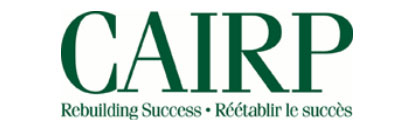DEALING WITH DEBT
Many Canadians will face a financial crisis at some time. Many debt problems are easy to solve. Others need professional assistance. The best way to deal with your financial problems is to admit them and get control before they get out of hand.
This booklet may help you decide whether or not you have a serious debt problem. It also gives some suggestions for solving your difficulties and avoiding them in the future.
The information in this booklet is meant for individuals only and does not apply to corporations.
Readers are reminded that this booklet is not meant to be used for legal purposes. Its only aim is to give information to individuals who are having financial difficulties.
Recognize the danger signals
You have a debt problem, or are going to have one, if:
you continually go over your spending limit or you use your credit cards as a necessity rather than a convenience;
you are always borrowing money to make it from one payday to the next
your wages have been garnisheed to pay for outstanding debts
you pay only interest or service charges monthly and do not reduce your total debt over many months; creditors pressure you for payment, threaten to sue or repossess your car, furniture or television, or hire a collection agency to recover the money for them; or
utility companies cut off service because your bills have gone unpaid.
Possible solutions
Contact your creditors
Explain why you can't make your payments and suggest making lower payments over a longer period of time. You may be surprised but many creditors are willing to accept such arrangements.
Credit counselling
Credit counselling services are available, but may be different from province to province. Contact a local family or community counselling office or association to find out how to get in touch with such a service. If you have difficulty making a budget and sticking to it, counselling may help you.
Debt consolidation loan
You can ask a bank or financial institution about combining or "consolidating" your debts into one loan. In such a case, the bank or financial institution will pay off all your debts and, in return, you make monthly payments to that creditor. Make sure to shop around because interest rates are different. It is important to stop buying on credit. Continuing to use credit could make your debt load too great for you to handle.
Consolidation Order
If you live in Alberta, Saskatchewan, Nova Scotia or Prince Edward Island you may apply for a Consolidation Order. A Consolidation Order sets out the amount and the times when payments are due to the court. The court will distribute your payments to your creditors. This part of the Bankruptcy and Insolvency Act (Part X: Orderly Payment of Debts) lets you pay off your debts over three years and frees you from creditor harassment and wage garnishment. Unlike bankruptcy, you do not lose your assets.
Voluntary Deposit scheme
For residents of Quebec, the Voluntary Deposit scheme (better known as the "Lacombe Law") is similar to a Consolidation Order. You must make a monthly payment based on your income and number of dependents, to the court. This service is usually available at the local courthouse.
Consumer proposal
Under the Bankruptcy and Insolvency Act you may make a proposal to your creditors to reduce the amount of your debts, extend the time you have to pay off the debt, or provide some combination of both.
Bankruptcy
If none of the above methods solves your debt problem, you may choose to consider bankruptcy. Bankruptcy should be a last alternative if you cannot meet your financial responsibilities through affordable payments over a specific period of time.
Bankruptcy is a legal process performed under the Bankruptcy and Insolvency Act. Because of your inability to pay your debts, you assign all of your assets, except those exempt by law, to a licensed trustee in bankruptcy. This process relieves you of most debts, and legal proceedings against you by creditors should stop.
Source : Strategis.ic.gc.ca


